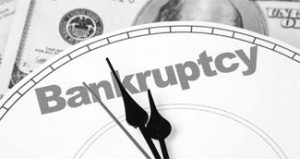
The Section 341 Meeting – The debtor must appear and submit to oral examination, under oath, at a meeting of creditors convened (called, brought together and conducted) under section 341 of the Bankruptcy Code. The meeting is convened (called and brought together and conducted) by a trustee appointed by the Office of the United States Trustee, a division of the United States Department of Justice. The purpose of this meeting is to enable the Trustee and creditors to discover and preserve assets. Any creditor may appear and examine the debtor. The debtor is required to attend. This obligation to attend is not satisfied by the appearance of counsel for the debtor. Under certain circumstances, the debtor may be permitted to appear by phone for good cause shown such as illness, disability ,out of state residence, or active service in the United States Armed Forces. The case may be dismissed if the debtor fails to appear or if the debtor exercises a Fifth Amendment right against self-incrimination (See further provisions dealing with self-incrimination below).The Court is forbidden to preside or attend the meeting. The Debtor and all creditors will receive 21 days written notice of the meeting. The meeting may be adjourned and reconvened in certain circumstances, and the debtor will be required to attend additional meetings, although this seldom happens except in larger complex cases.

- The chapter under which the debtor has filed for relief;
- The date of the filing;
- The debtor’s name and address and any other names used by the debtor in the last 8 years;
- The last 4 digits of the debtor’s Social Security number;
- The name, address and telephone number of the Trustee assigned to hear and administer the case;
- The date, time, and place of the first meeting of creditors under section 341 of the Bankruptcy Code;
- Whether or not there is a presumption of abuse;
- Deadlines for objections to discharge of certain debts or to the discharge as to all debts, as well as to object to exemptions;
- A short description of actions that creditors may not take (the effect of the automatic stay);
- Whether creditors should file a claim and if so, the bar dates for the filing of such claims;
The address of the Bankruptcy Clerk’s office
Self-Incrimination and immunity
Anyone who is required to submit to an examination to testify or to provide information in a bankruptcy case may be granted immunity. If immunity is granted, the person may be compelled to testify. For example, suppose that either the debtor or a witness has been asked to testify as to a large and valuable asset that has not been disclosed in the bankruptcy papers as filed. The debtor or witness may wish to assert their fifth amendment right against self-incrimination. The trustee then has a choice. The trustee can file for dismissal, and the Court will dismiss the case. The trustee may decide that it is in the public interest to obtain immunity from prosecution for the debtor or witness having knowledge of this asset. If immunity is granted, the debtor or witness can then be compelled to testify.
Four steps must be completed to obtain immunity:
- The person must refuse to testify;
- The trustee or other party in interest must enlist the aid of the U.S. Attorney;
- The U.S. Attorney must be satisfied that the testimony of the person is in the public interest;
- The U.S. Attorney must apply to the District Court for an order.
Income in respect of discharge of indebtedness
The discharge of debts in bankruptcy does not result in imputed income taxable to the debtor.
If a creditor or its representative (such as a collection agency or collection attorney) supplies the debtor with 2 communications within 90 days prior to the bankruptcy filing, provides the debtor’s account number, and the address to which correspondence should be sent, such creditor or representative is entitled to notice. For this reason it is important that the debtor provide to their bankruptcy attorney with copies of all communications received from creditors or their representatives within 90 days prior to their bankruptcy filing.
570.826.0481 | Telephone
800.221.0618 | Toll Free
570.822.7780 | Fax
stephen@gurdinlaw.com | email
